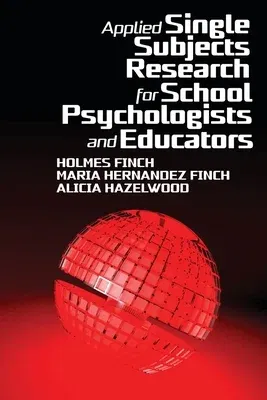This book will be written primarily for graduate students, advanced
undergraduates, and professionals in the fields of school psychology,
special education, and other areas of education, as well as the health
professions. We see the book as being a viable textbook for courses in
research design, applied statistics, applied behavioral analysis, and
practicum, among others. We would not assume of the readers any prior
knowledge about single subjects designs, nor any prior statistical
experience. We will provide an introductory chapter devoted to basic
statistical concepts, including measures of central tendency (e.g.,
mean, median, mode), measures of variation (e.g., variance, standard
deviation, range, inter-quartile range), correlation, frequency
distributions, and effect sizes. In addition, given that the book will
rely heavily on R software, the introductory chapter will also devote
attention to the basics of using the software for organizing data,
conducting basic statistical analyses, and for graphics. The R commands
used to carry out these analyses will be largely automated so that users
will only need to define the range for their data, and then enter it
into the R spreadsheet. We envision these tools being available on the
book website, with instructions for using them available in the book
itself.
We envision the book as being useful either as a primary text for a
course in educational research designs, school psychology practicum,
applied behavioral analysis, special education, or applied statistics.
We also anticipate that individuals working in schools, school
districts, mental health facilities, hospitals, applied behavioral
analysis clinics, and evaluation organizations, as well as faculty
members needing a practical resource for single subject design research,
will all serve as a market for the book. In short, the readership would
include graduate students, faculty members, teachers, psychologists,
social workers, counselors, medical professionals, applied behavioral
analysis professionals, program evaluators, and others whose work
focuses on monitoring changes in individuals, particularly as the result
of specific treatment conditions.
We believe that this book could be marketed through professional
organizations such as the American Educational Research Association
(AERA), the National Association of School Psychologists, the National
Association of Special Education Teachers, the Association for
Professional Behavior Analysis, the American Psychological Association
(APA), the Association for Psychological Science, and the American
Evaluation Association. Within AERA, the following special interest
groups would have particular interest in this book: Action Research,
Classroom Observation, Disability Studies in Education, Mixed Methods
Research, Qualitative Research, and Special Education Research. The book
could also be marketed to state departments of education and their
special education and school psychology divisions. Currently, many state
departments of education require documentation for Response to
Intervention (RtI) and Multi-Tiered Systems of Support (MTSS) procedures
for individual students. The method taught in this proposed book would
allow educators and student support personnel to document the
effectiveness of interventions systematically and accurately.


